
In a bumper five days of competition, the IFSC Lead and Boulder World Cup circuit returned to Innsbruck, where Janja Garnbret (SLO) won double gold and Sorato Anraku (JPN) and Sascha Lehmann (SUI) took victories in front of a packed crowd. IFSC commentator Matt Groom reports...
Every year the World Cup in Innsbruck feels a bit like a World Championship. It's a big week, with Paraclimbing, Boulder and Lead all descending on the outside arena off the Kletterzentrum Gym. When the athletes aren't competing they train inside, pulling onto the 8c and harder routes on the main walls or perhaps having a coffee in the cafe. It's a bit like a zoo for pro climbers, and it's hard not to just wander around and stare in amazement at the talent crushing in front of you.
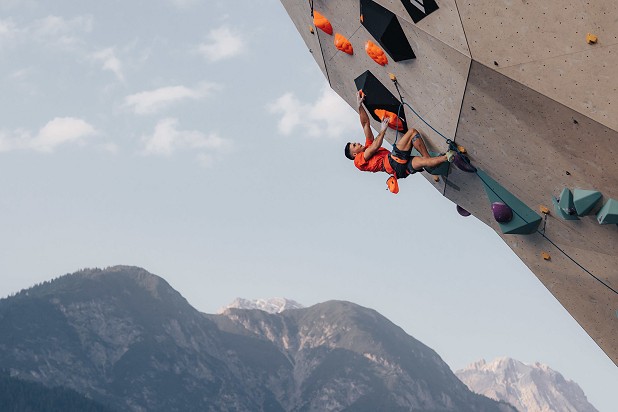
Boulder
Women
The women's Boulder final line-up was one of the most stacked groups of athletes I've ever seen. Alannah Yip wanted to commentate with me again as the competition was potentially her last ever Boulder World Cup. It's not a full retirement, as she will try to qualify for the Olympics, but she feels ready to move on to other things. She will be missed.
Sadly Great Britain's women didn't progress to semis with Holly Toothill getting highest in 43rd, followed by Louise Flockhart doing well in 51st and alongside her was Lucy Garlick with the same rank, but in a different group.
Boulder 1 required a jump start to the starting holds, and Ai Mori (JPN) struggled with the move, not having the reach or pop to get the crimps. The route setters had tweaked the boulders to try and make them less height dependent, but there were a few times where Ai (154cm) didn't have the span. Is this bad setting…or a weakness that Ai needs to work on, improving her dynamic climbing ability? Height is often discussed in competitions, and usually athletes find a way to work through difficulties like that. Certainly people were frustrated in the comment section on YouTube about the setting, but I think the problem is more complex than it seems.
Half of the athletes flashed Boulder 1. Brooke Raboutou (USA) didn't bring her feet up to the starting position and was called off the boulder by the judges. She had to reset, but it must have been a tricky mental game to have that kind of start. Her top in 3 tries was testament to that strength.
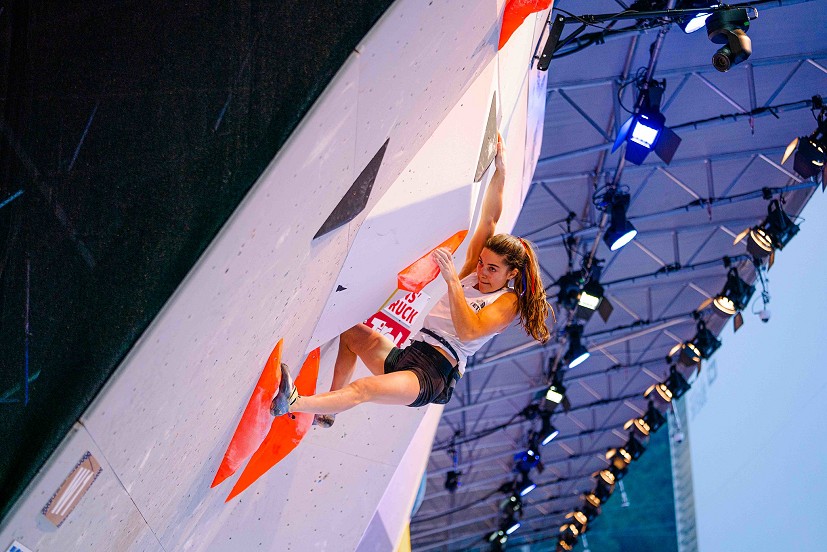
Boulder 2 was a slab, with a few different methods for getting through the first delicate moves. Futaba Ito (JPN) was climbing in her 8th final, but has never managed to convert that to a medal. It was heartbreaking to watch her fall on the last jug, her hands slightly too high as she slid down to the mats. It was the end of her chance for a medal in 2023's Boulder season. We saw multiple flashes of the climb, with the top three - Miho Nonaka (JPN), Janja Garnbret (SLO), and Natalia Grossman (USA) - staying the same.
Rain had begun to fall at this point, but luckily not the intense storms that we sometimes see roll through Innsbruck. The audience got a bit damp but the wall stayed dry. So we turned our attention to Boulder 3, the hardest and most physical of the set. The crux move involved a jump to a sloper, with a wild swing that the athletes had to somehow control. Everyone struggled here, some slowing the swing, but not doing enough to hold the move, and they tried everything possible.
Miho Nonaka (JPN) got the Zone in seven attempts while Natalia Grossman (USA) actually topped the boulder, but right at the last second. She wasn't awarded the top, and we thought there would be an appeal, but a slow motion replay clearly showed the clock tick down to zero before Natalia made the match. Close…but no.
Someone needed to make a leap ahead. As has so often been the case, that person was Janja —and she did something pretty special. Instead of trying to stop the swing, she used the momentum to paddle up to the next zone hold. Writing that sounds simple, but it needed immense strength and understanding of movement to turn the jump into a vertical paddle. Janja flashed the climb, moving into first position.
Boulder 4 was another dynamic one, with a precision jump to land on a yellow volume. Getting to the zone after the jump wasn't too bad, but the last sequence, which involved a swing-to-toe-catch move was hard. The atmosphere was intense as every athlete tried every method to get through the move. Natalia attempted standing on a screw hole, there were jumps, heel hooks…and a lot of falling. On Miho's first try she completely missed the first jump, and the cameras caught Natalia gasping as she flew through the air.
When Janja came onto the mats she just needed to flash the Zone for victory, but she did one better. Coordination and dynamic boulders like the ones in Innsbruck are tricky to send quickly. You have to have incredible instincts to make adjustments on the fly. Remember, in a stacked field where no other climber came close to the top...Janja flashed it.
As she matched the last hold, you could see her body shake as the emotion hit. Janja hasn't been competing in Boulder World Cups. She took a break last year to focus on Lead, then a toe injury stopped her from climbing in the first few comps. To win again, and to do it in such style with four flashes, meant everything to her. It's rare that we see Janja in tears - it's sometimes easy to forget that she's human - and moments like that should remind us of what an incredible athlete she is, and ambassador for the sport.
Janja took her first gold of the year, Natalia Grossman (USA) silver, and Miho Nonaka (JPN) bronze. I think it's a shame that the overall winner of the season seems to be almost an afterthought now. Athletes are prioritising World Championships and Olympic selection over competing all season, which is totally reasonable. However, I would love to see more focus on it, perhaps by increasing the prize money for the overall winner. Regardless, Natalia received the trophy, her third season win in a row ahead of Miho Nonaka (JPN) and Brooke Raboutou (USA).
Men
On to the men's competition and Toby Roberts (GBR) couldn't repeat his brilliant gold medal performance from last weekend in Brixen. He was just outside a semi-finals place in 9th, and is looking forward to returning to a Lead wall soon. The rest of the Brits didn't make semis, although Jack MacDougall (GBR) came close in 23rd. Max Milne (GBR) was 35th with one top.
I had Cody Grodzki, an IFSC route setter, in the commentary box and I think it's really helpful to bring him and his expertise to the broadcast. It's good to understand the reasoning behind some of the decisions they make, and to more fully understand the movement and styles they want to create. He can also explain what might have happened if something goes wrong!
Boulder 1 had a wild middle move with a jump that swung the athletes' feet far above their heads. It was meant to be an easy intro into the competition, as Cody said: 'to get the athletes' blood up'. It was dramatic, but straightforward and four athletes flashed the boulder. Simon Lorenzi (BEL) had climbed all four semi-finals boulders and easily won that round, but he couldn't find the magic again. He was struggling and missed the Zone on Boulder 1, which set the tone for his finals, as he was unable to get on the scoreboard.
Boulder 2 was where things changed at the top of the leaderboard. We've known for a while how good 16-year-old Sorato Anraku (JPN) was, and it was his night in Innsbruck. He was the only one to top the boulder, which had a tricky crux move, reaching around a corner to a vertical hold off a bad sloper. Sorato made it look easy; he was the first one out and caught us by surprise. It was only after no one else could even get the Zone that we realised how special that top was.
Sorato could have sealed victory on the slab of Boulder 3, but that climb got away from him. Only Meichi Narasaki (JPN) and Sam Avezou (FRA) could figure it out. The climb was designed so that the athletes had to pivot on one foot, turning to face the audience as they dropped their shoulders and turned. It was one of those moves that you had to believe was possible, even if it felt improbable. It was ballerina-like as the athletes turned on one foot - a truly new-school move and I'm glad it worked. Sam Avezou (FRA) did it brilliantly, climbing it in just two attempts, which moved him into second place.
As with the women, it was all to play for as we moved into the last boulder. On the steepest part of the wall it had a coordination style jump with a shoulder press, to land on a volume. It needed quite a lot of attempts to get the range on the jump, but once that was done, the top was easier.
Sorato had the best chance of winning, but we had no idea how many attempts would get him the win…we just knew he needed to climb it to be in the running for the win. Each attempt he had made it more likely that someone would catch him and each time he fell, the pressure was ramped up. On his seventh go Sorato stopped the swing with a kick, and made the final few moves with ease.
As he was out first he had to wait nervously on the sofas on the edge of the stage. Sam Avezou (FRA) could have caught him, but needed to top in only a few attempts and it took him five to send the boulder, moving him into 2nd place, and there was last minute drama as Meichi - with a minute to go, and after seven attempts - latched the last hold, which moved him from 5th to silver and pushed Sam to bronze.
Not only did Sorato take the victory, but it also meant that he won the overall title for 2023 ahead of Dohyun Lee (KOR) and Tomoa Narasaki (JPN). The star who was waiting in the wings walked onto the stage, and considering how good a Lead climber he is, Sorato is a potential Olympian.
Lead
Innsbruck marks the transition from the Boulder season into the Lead competitions. Lead specialists who have spent the year preparing get to show off their skills while other athletes climb in both disciplines. How they have the skin,and energy is beyond me. With the Olympics looming it's important for hopefuls to crush on the boulder wall, and have the endurance needed for long routes — a difficult balancing act.
The setters had created another shared finish section similar to the routes we saw in Jakarta last year. Unfortunately none of the climbers could reach the giant purple volume that was meant to be stood on to clip the chains. I really like the idea behind this, and I'm looking forward to the day where the concept becomes reality. I really enjoyed sharing the commentary box with Jesse Grupper, an athlete who I've always wanted sitting next to me. He provided intelligent and eloquent commentary — a natural considering it was his first time.
Women
GB Climbing's Molly Thompson-Smith finished just outside the finals cut-off after an appeal changed her original semis score, which had placed her in 8th. A great start to the season nonetheless for Molly, who is returning from a nasty ankle injury.
The women's route was especially challenging, the climbers having to fight from the moment they pulled off the ground. This was made harder by the heat, the sun only leaving the wall moments before it started. Hélène Janicot (FRA) fell victim to an early move that needed full commitment and she was clearly disappointed as she attempted to reach statically and her foot slipped.
A physical section just before an angle change was the place where most of the women fell. From Natalia Grossman (USA) in 7th to 3rd place finisher Jessica Pilz (AUT), the scores were between 24+ and 25+. Small margins, and places were decided on count-back to the semi-finals. Ideally we would want to see more separation, but they seemed to relish the opportunity to put their training into practice.
Jessy was delighted and a little shocked to get the bronze medal, the camera catching the moment that she realised she was guaranteed a medal. Both Jessy and Jakob Schubert (AUT) seem to find a different gear in front of their home crowd.
Janja Garnbret (SLO) had already taken the Boulder gold, and climbed third-last in the Lead finals after being outclimbed in the semis, looking for the double. She made it through the crux move but had to turn on 100% try-hard mode. We saw her desperately making a clip high on the wall. She just managed it, her finger tips the only purchase on the swinging draw. When she fell it was clear she had given it everything and the smile on her face indicated how much she enjoyed the struggle. At that point she was way out in the lead, setting the high point of 39+ with only Ai Mori (JPN) and Chaehyun Seo (KR) left to climb.
We watched Ai beat Janja on numerous occasions last year and she climbed well, linking dynamic moves into rests. However, she missed a small foot jib, and fell on 33+, meaning that only Chaehyun could challenge Janja.
The night belonged to the Olympic champion, as Chaehyun was another victim of the boulder problem a third of the way up. The same holds had actually been used in the Boulder rounds earlier in the week, demonstrating the difficulty of that section.
Janja's return to the highest level of competition climbing after injury hasn't been easy. She told me that she had never fully understood the phrase 'What doesn't kill you makes you stronger'. After her toe injury, she said, she went to some dark places — a process that has strengthened her already world-class winning mentality. Once again Janja looks unbeatable, and she was walking around with two Gold medals slung around her neck.
Men
Toby Roberts (GBR) looked on form for a finals spot in qualification, but in semis seemed a bit burnt-out after a busy and successful season, finishing in 16th. After a bit of much-needed rest and recovery, Toby should be capable of making a finals soon.
The men's final route was all about endurance management. The moves down low were climbable, but mistakes, and missing shakeouts would cost them on the high crux of the climb. There was a knee bar rest on slopers that would be key to regaining strength, but only Alex Megos (GER) and Jakob Schubert (AUT) saw, and used it effectively. They often read climbs together and had a very similar method on that part of the wall.
Alex came out first and set the early high point. He's a true 'climber's climber' and was screaming encouragement to his competitors while he sat waiting on the sofas at the side of the wall. As I said earlier, Jakob seems to enter beast mode in Innsbruck and he rested well to get a score of 42+, the same point as three other climbers, but once again count-back was important. It's so good to see him in his element with a rope, and the crowd loved every second of his climb.
Sascha Lehmann (SUI) hadn't won gold since 2019 in Villars, and sometimes struggles with consistency. He is one of the world's best, but everything needs to be perfect for him to perform. He entered the arena last, having qualified in first position and his eyes were shining with excitement as he walked confidently onto the stage.
His climb was entertaining, giving us a few nervous moments as he figured out the trickier sequences. He reached a tiny side pull high up on the wall before firing off it. He earned the same score as Alex, but count-back brought him victory. He immediately went straight to his coaches for a hug, before turning his attention to the crowd. It's great to see him standing on top of the podium again and hopefully this gives him the confidence for the rest of the season ahead of an Olympic qualification event on home turf in Bern in August.
With some classic locations coming soon, and a new Lead wall in Briançon the rest of the Lead season is an exciting prospect ahead of the Bern World Championships — the first Paris 2024 Olympic qualification event. I look forward to you joining me for more action soon…

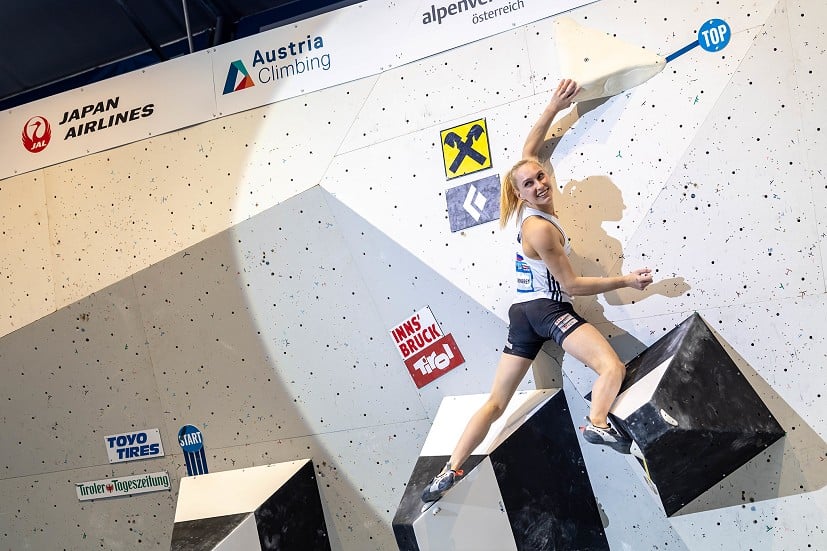
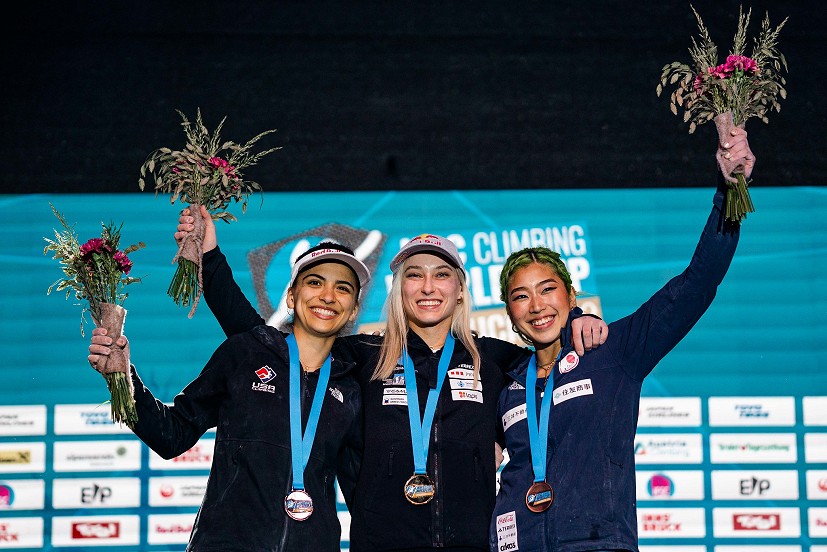
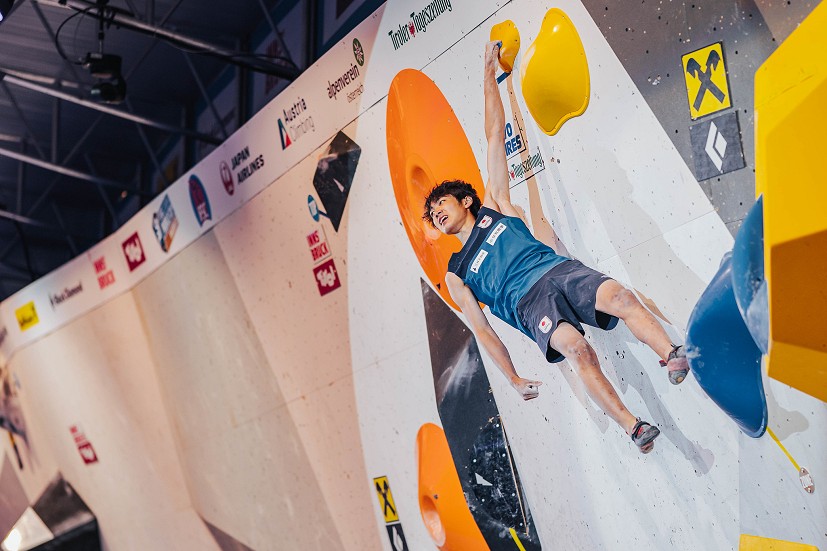
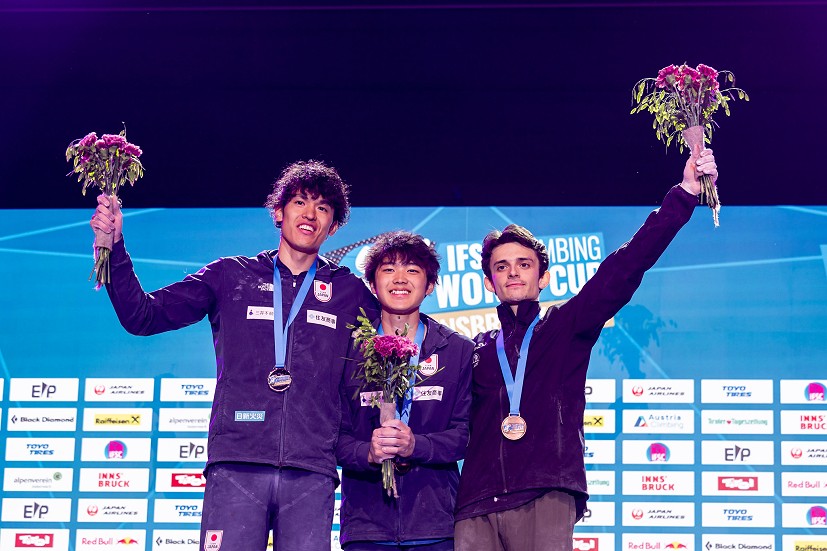
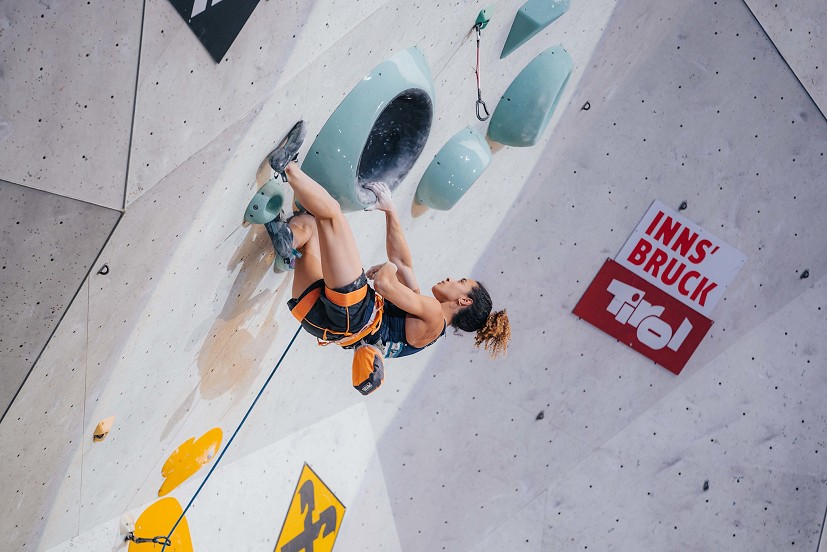
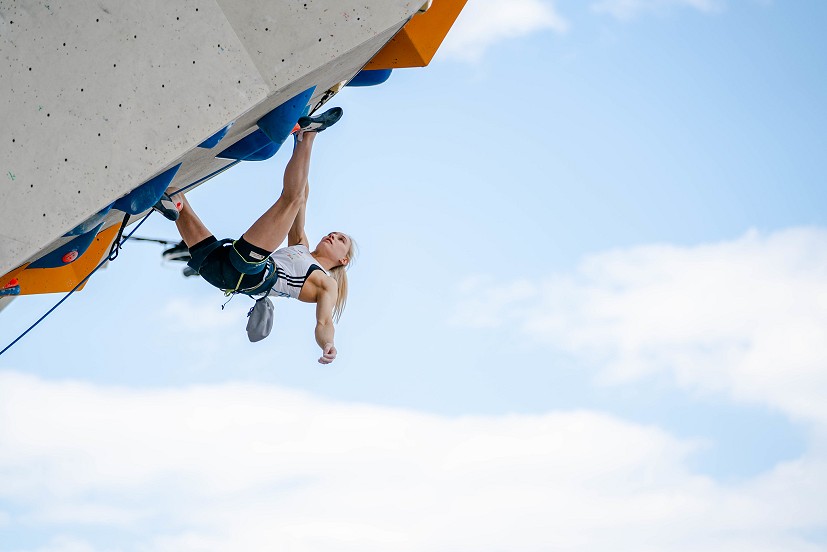
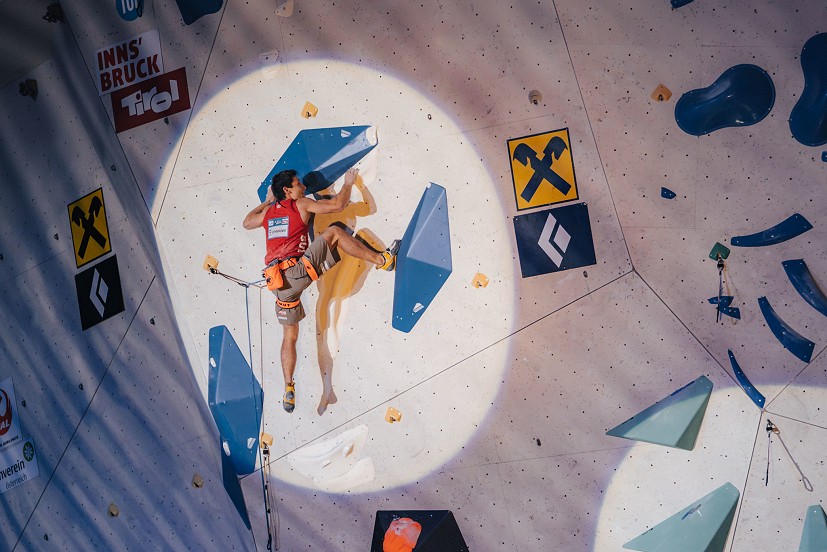




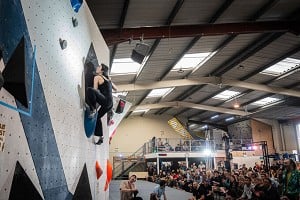
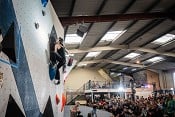



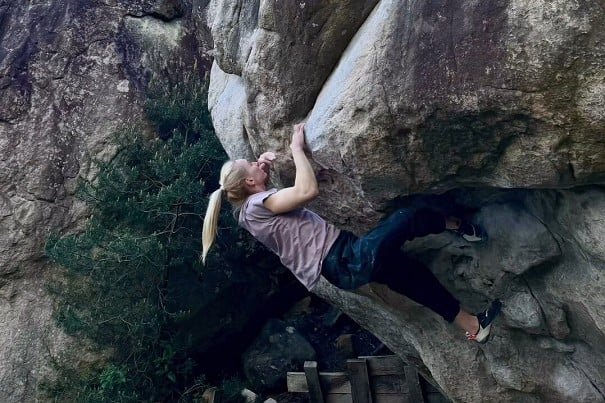

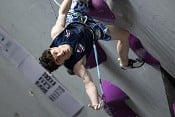
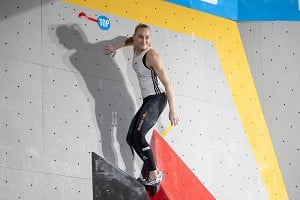
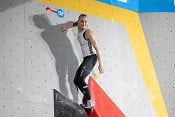
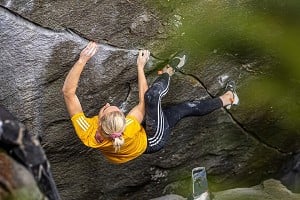
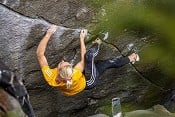
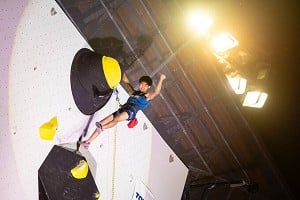
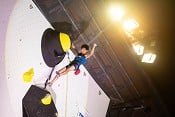
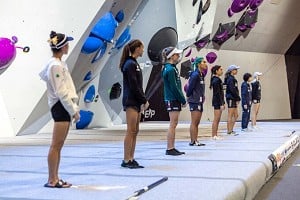
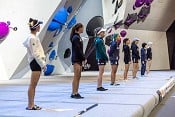
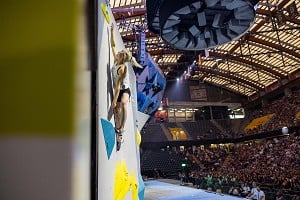
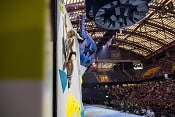
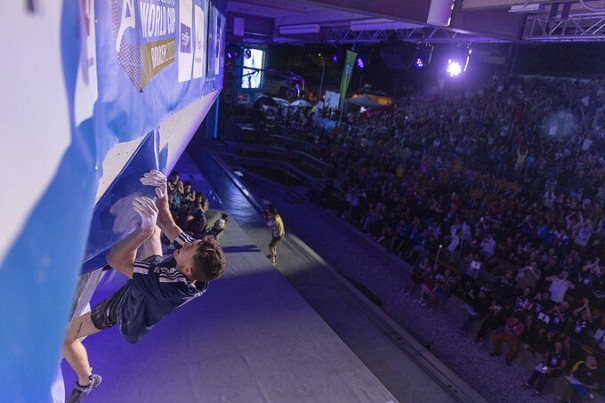
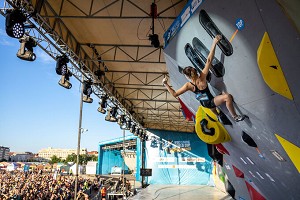
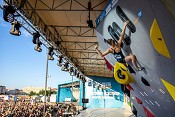
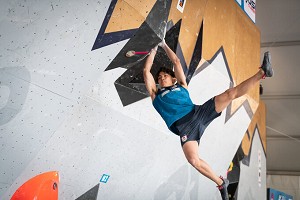



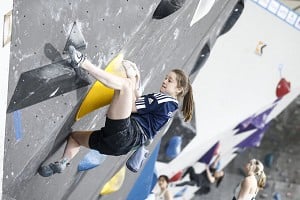
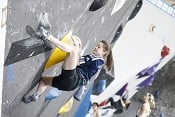
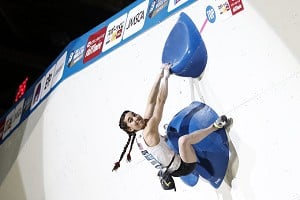
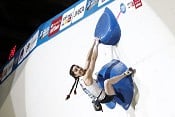
Comments
Hello, would you mind not posting who has won the event in the title? It ruins it a bit for people who haven't caught up yet.
Didn't you ask this last time too? Haven't you figured out how to avoid ukc until you've caught up, it's not that hard.
Indeed he did:
https://www.ukclimbing.com/forums/ukc/ifsc_boulder_world_cup_seoul_2023_report-759207?v=1#x9775112
Nomen est omen ...
As per Nick's response from last time you asked, if you want to avoid accidentally seeing the results - I'd suggest avoiding UKC.
We are - amongst other things - a climbing news website, hence we report on climbing news. If you don't want to see climbing news - avoiding going to the climbing news website.
In the same vein, if you don't want to know the football, tennis, cricket and rugby scores don't visit BBC Sport either, and if you do - don't complain when you see the scores...
It was a great competition. Loads of good climbing in both boulder and lead.
Perhaps I am just getting used to it, but I thought the boulder problems weren't as parkoury as in some rounds. The lead routes in the finals looked absolute nails.
However, I don't think we'll ever see the likes of old school comps such as this:
https://www.youtube.com/watch?v=5-AkweXwoDs